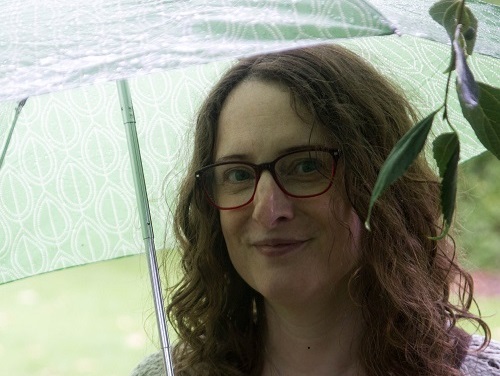The School of Business, Economics and Informatics’ 2021 undergraduate prize-winners share their tips for managing workload, making connections and getting the most out of a Birkbeck degree.
This week, Birkbeck’s undergraduate class of 2021 will be celebrating their achievements at virtual graduation ceremonies with the Vice-Chancellor, Professor David Latchman, the President of Birkbeck, Baroness Joan Bakewell and of course their lecturers, friends and family.
Students who have performed exceptionally well in the School of Business, Economics and Informatics will be presented with awards at the Undergraduate Prizegiving Ceremony on Tuesday evening.
Graduation might seem a long way off if you joined Birkbeck this year, but one thing we’ve learned from our prize-winners is that early preparation is key to succeeding in final exams and giving you the chance to make the most of everything on offer during your time with us.
Read on for our graduates’ top tips on how to get the absolute best out of your Birkbeck experience.
How to get ahead in your studies: can-do attitudes and consistency
“Have a positive ‘I can do this’ attitude and work hard towards your goals. Remember to focus on what is best for you in the long run, instead of what feels easy or right in the moment.” – Jaunius, Best Overall Final Year Student (BSc Economics and Business)
When it comes to getting the most out of your studies, getting in the right mindset is a great place to start. Why not try building focus with meditation, or writing down your goals somewhere that you’ll see every day, to remind you what you’re working towards?
“Be consistent with your studies! Stay on top of the module content as much as you can, it really is an advantage for your assignment and exam preparation.” – Steffi, Fiona Atkins Prize: Best Continuing BSc student (Department of Economics, Mathematics and Statistics)
“Try to go beyond memorising the key points illustrated in lecture notes and reading material by testing your understanding of theories and concepts regularly. Taking just a little extra time each week to revisit a key point is an excellent way to get to grips with a topic, pinpoint focus areas to discuss with your lecturers and ultimately ease the pressure when it comes to exam preparation later on.”– Simon, Best Project (Department of Economics, Mathematics and Statistics)
Carving out some focus time to check understanding is a great way to stay on top of your studies and identify any areas for support. Are there any quiet periods in your week where you could set some time aside to consolidate?
“My advice would be to make sure you reach out to your personal tutor if you start falling behind, they are there to help! I would also recommend electing the dissertation/project module as it is a useful way to build independent research skills.”– Sean, Best Final Year Student (Financial Economics)
Your personal tutor is your first port of call if you need help in managing your studies or other support. You can find their contact details in My Birkbeck under ‘Academic Support’. If you do not have an assigned personal tutor, get in touch and we can help.
Taking care of yourself during your studies
“Make a point to incorporate holistic habits into your daily life, so that you not only work and study but also exercise, eat fruit and vegetables, walk, meditate, tidy your space etc. All things become easier and more achievable when you are mentally and physically healthy. Listen to your body and make your health a priority.” – Joana, Benedetta Ciaccia Memorial Prize: Best final year student on the Foundation Programme (Department of Computer Science and Information Systems)
“Relax and focus on enjoying your subject. Don’t try too hard to understand any tricky new material. Just give yourself time and if you let thoughts and ideas tick over in the background then anything you don’t understand will gradually become clearer and more simple.” – Alice, Mehdi Prize: Best Performance in Mathematics
Taking some time out from studying gives your brain a chance to process what you’ve learned. If you’re looking for some accountability to stay active, or for a fun way to take a break from the library, check out the sports clubs and societies on offer through Birkbeck Students’ Union.
Know what support is available
“Take the time to map out where to find academic support. It’s about detailing the resources that would keep you optimal. For example, know the name of your personal tutor, you’ll need them for the occasional academic and emotional support. Sign up to studiosity for study help and LinkedIn learning for self-directed learning.” – Sabina, Best Overall Student (Department of Organizational Psychology)
“Ensure that you make the most of the resources available to you, whether that be the additional reading material provided for lectures or the Birkbeck library. Additionally, don’t be afraid to seek clarification/ask questions – this will allow you to develop your understanding!” – Charlotte, Best Overall Student (Business)
Our support services are there to be used, so if you need any help or advice on anything from academic work, to finance, to managing stress, don’t hesitate to reach out. Find out more about the support available in the School of Business, Economics and Informatics on our website.
Build your professional network and your support network
“Birkbeck provides endless opportunities for students to explore their interests and build a strong network of people with similar passions. Use your time at Birkbeck to connect with other students, exchange ideas, views and knowledge. Don’t be afraid to try a new activity, join a club or society. Explore your interests and enjoy your time at the university along the way!” – Venita, Derek Scott Memorial Prize: Best performance by Non-finalists (Department of Economics, Mathematics and Statistics)
Your university experience is about so much more than your degree. Take the time to get involved in the Students’ Union, join us for an event and soak up all that your time at Birkbeck has to offer.
And to those students who are graduating today and tomorrow – congratulations! We hope you will stay in touch with Birkbeck and we will be cheering you on with whatever you decide to do next.



